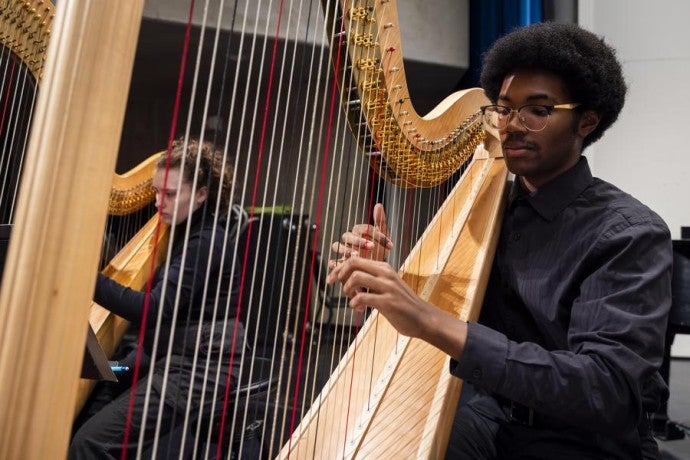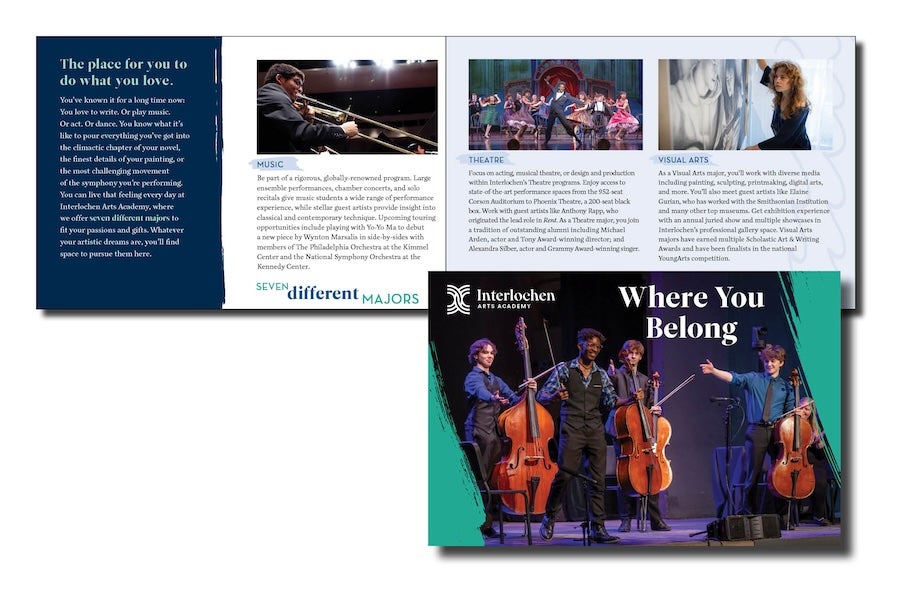How music boarding school prepares you for college and career success
From world-class faculty to expert audition preparation to college-preparatory academics, music boarding school can help you prepare for the career of your dreams and stand out in a competitive college and conservatory landscape.

Updated: July 8, 2024
Choosing a college is one of the biggest decisions of your life—especially if you plan to pursue a career in the competitive music industry.
Whether you want to attend a state school or an elite conservatory, the decisions you make during your middle and high school years are keys that unlock the path to the college of your dreams. As college music programs become increasingly selective, more and more high school students are considering a music boarding school to help them navigate the application process and become more attractive applicants.
Below, we share a few of the ways that a music boarding school experience can set you up for college and career success in the arts.
Admission representatives from arts-focused colleges, universities, and conservatories share why they’re excited to see Interlochen Arts Academy on an application.
Dive deeper into Interlochen Arts Academy with a free digital viewbook
